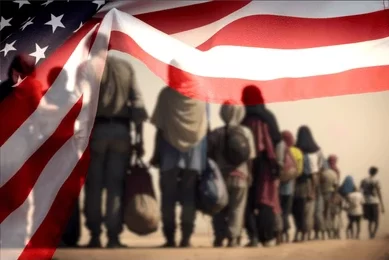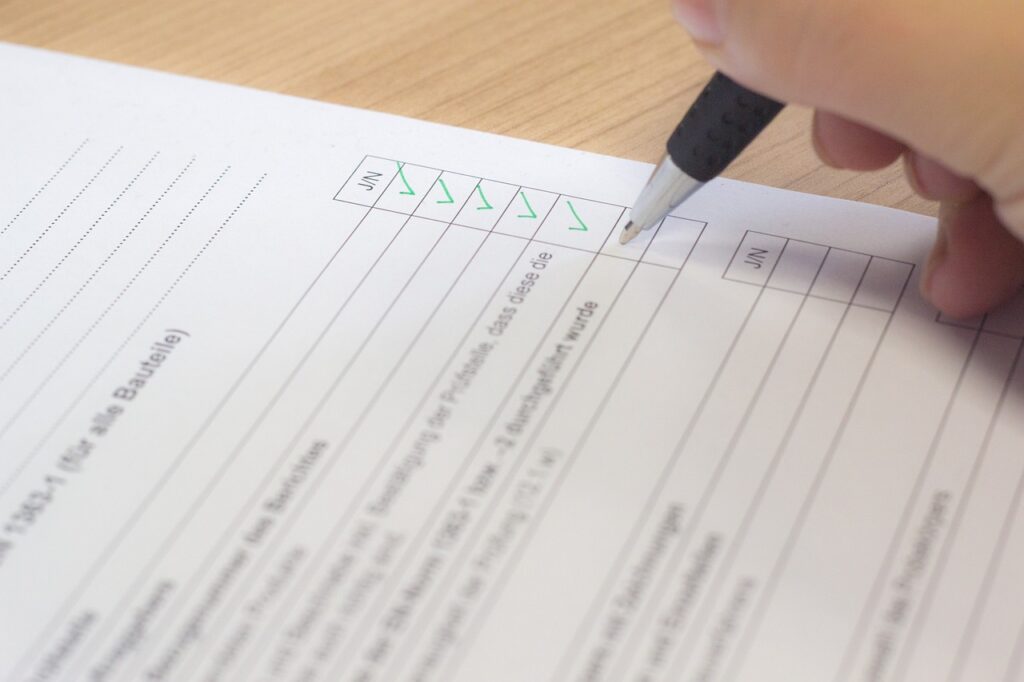Supplemental Information for Spouse Beneficiary

Supplemental Information for Spouse Beneficiary
(Form I-134A)
Filing Form I-134A using HelpLegal Forms requires the following Fees:
Our Application Package Fees : $240
USCIS Fees : $575(subject to change)
Asylum Application and For Withholding of Removal

Asylum Application and For Withholding of Removal
(Form I-589)
Filing Form I-589 using HelpLegal Forms requires the following Fees:
Our Application Package Fees : $99
USCIS Fees : $0(subject to change)
Refugee or Asylee Relative
Petition

Refugee or Asylee Relative
Petition
(Form I-730)
Filing Form I-730 using HelpLegal Forms requires the following Fees:
Our Application Package Fees : $99
USCIS Fees : $0(subject to change)
Application for Temporary Protected Status

Application for Temporary Protected Status
(Form I-821)
Filing Form I-821 using HelpLegal Forms requires the following Fees:
Our Application Package Fees : $99
USCIS Fees : $80 plus additional fees(subject to change)
Our Application Package Includes

Your Personalized Path to seamless Immigration – Expert Guidance, Tailored solutions, and Stress-Free Success!

Accurate Form Preparation
Precision in Every Form – Ensuring Accuracy, gives the confidence you need for a Smooth Visa/Immigration process!

Application Process Support
Expert Assistance with Documentation, Submission, and tracking to ensure a Smooth and Efficient process!

Expert Documentation Review
We fine-tune every detail to ensure your Visa or Immigration Application is spot-on and ready to go!
Supplemental Information for Spouse Beneficiary
Form I-134A
What Is the Form I-134A?
Form I-134A, Online Request to be a Supporter and Declaration of Financial Support, is a relatively new form introduced by U.S. Citizenship and Immigration Services (USCIS). It is used in connection with the Parole process for certain individuals seeking to come to the United States under humanitarian parole programs.
When is Form I-134A used?
Form I-134A is used to demonstrate that the sponsor can provide financial support to a person applying for Humanitarian Parole (which allows someone to enter the U.S. temporarily for urgent reasons) or some other nonimmigrant status. This form is commonly used for the following types of cases:
- Parole for Ukrainian Nationals under the Uniting for Ukraine program (as part of the U.S. response to the Russian invasion of Ukraine).
- Parole for Afghan Nationals who assisted the U.S. military and need protection.
- Humanitarian Reasons, where individuals need to enter the U.S. on a temporary basis due to urgent situations like war, persecution, or natural disasters.
Key Points about Form I-134A:
Purpose of Form I-134A:
The sponsor needs to provide proof of financial means to support the applicant during their stay. It also demonstrates that the applicant is not likely to become a public charge (i.e., reliant on U.S. government assistance). The form includes questions about: The sponsor’s financial status, such as income and assets. How the sponsor plans to support the applicant. Information about the relationship between the sponsor and the applicant.
- The I-134A is used for individuals who want to provide financial support to beneficiaries (usually family members or individuals seeking humanitarian parole) and declare their financial ability to support them during their stay in the U.S.
- The form is often used in humanitarian parole cases, particularly in the context of the CBP One app process (which is used for certain individuals seeking entry to the U.S. under humanitarian parole programs like the Uniting for Ukraine program, the Parole Process for Venezuelans, or others).
- Granted automatic permanent residence by USCIS Establishing beginning commuter status (you’ve been approved to live in another country, while commuting to the U.S. for work)
- Form I-134A is the supporter’s declaration that they can financially support the parole applicant(s), ensuring they will not become a public charge in the U.S.
Eligibility to be a Supporter (Sponsor):
- The supporter (U.S. citizen or LPR) must demonstrate the ability to financially support the parole applicant(s) while they are in the U.S. to ensure that the parolee will not become dependent on government welfare or public assistance.
- The supporter needs to provide financial information and documentation to prove that they have sufficient income or resources.
Filing Form I-134A for Supplemental Information for Spouse Beneficiary using HelpLegal Forms requires the following Fees:
- HelpLegal Forms Application Package Fees: $240
- USCIS Application Fee: $575 (Subject to change)
Who Files Form I-134A?
- Supporters: The form must be filed by a U.S. citizen or a lawful permanent resident (LPR) who is willing to support an individual (parole applicant) coming to the U.S. under a humanitarian parole program.
- The beneficiary is the person seeking entry into the U.S., and they do not file the I-134A; the sponsor (supporter) must submit it on their behalf.
- The form may be used for family-based parole requests or other designated humanitarian parole programs.
Who Can be Sponsored Using Form I-134A?
Form I-134A is primarily used for humanitarian parole applicants seeking to enter the U.S. temporarily. This can include:
- Family members (spouses, children, parents) of the supporter.
- Individuals seeking entry under specific parole programs, such as:
- Unite for Ukraine program.
- Parole programs for Venezuelans or other specific nationalities.
- Individuals fleeing dangerous situations in their home countries (for urgent humanitarian reasons).
Responsibilities of a Sponsor
- Financial Support: The sponsor must provide financial assistance to ensure the beneficiary’s basic needs (e.g., food, shelter, healthcare) and prevent them from becoming a public charge.
- Documentation of Financial Ability: The sponsor must prove their income and financial resources (e.g., through tax returns or bank statements) to show they can support the beneficiary.
- Legal Obligation: The sponsor is legally obligated to support the beneficiary for the duration of their stay in the U.S., covering living expenses and ensuring they do not rely on public benefits.
- Notify USCIS of Changes: The sponsor must inform USCIS if there are significant changes in their circumstances (e.g., income changes or inability to support the beneficiary).
- End of Responsibility: The sponsor’s responsibility may end when the beneficiary’s parole or temporary status expires, or if the beneficiary leaves the U.S. However, for permanent statuses (e.g., family-based green cards), the obligation may last several years.
- Co-Sponsor:If the primary sponsor cannot meet the financial requirements, a co-sponsor can share the financial responsibility.
Application for Asylum and for Withholding of Removal
Form I-589
What Is the Form I-589?
The Form I-589, officially titled “Application for Asylum and for Withholding of Removal”, is not a U.S. visa application. Instead, it is used to apply for asylum in the United States or to seek withholding of removal. It is for individuals who are already in the U.S. and are seeking protection from persecution in their home country. Form I-589: Asylum Application (Not a Visa Application) Form I-589 is used by individuals already in the United States who are seeking asylum or withholding of removal.
Key Purpose of Form I-589:
Form I-134A is used to demonstrate that the sponsor can provide financial support to a person applying for Humanitarian Parole (which allows someone to enter the U.S. temporarily for urgent reasons) or some other nonimmigrant status. This form is commonly used for the following types of cases:
- Asylum: To seek protection in the U.S. if returning to your home country would put you at risk of persecution.
- Withholding of Removal: A form of protection that prevents deportation to a country where you face harm or persecution. It’s typically granted when asylum is not available, but there’s still a credible fear of harm.
Applicants can include spouses and children under 21 in the same application. They will be considered dependents if they are part of the asylum claim.
The form includes specific sections to list family members seeking asylum or protection.
Form I-589 is a critical document for individuals seeking asylum or protection in the United States. It’s important to provide accurate and thorough information and documentation to support the claim. Given the complexity of asylum law and potential consequences, many applicants find it beneficial to seek legal assistance when completing this form.
Filing Form I-589 for Application for Asylum and for Withholding of Removal using HelpLegal Forms requires the following Fees:
- HelpLegal Forms Application Package Fees: $99
- USCIS Application Fee: No Fees currently(Subject to change)
Who Should Use Form I-589?
- Individuals who are physically present in the U.S. (including those with temporary status or without status) and fear returning to their country due to the risk of persecution.
- People seeking protection from deportation or removal.
Asylum Eligibility
- Applicants must demonstrate that they have a well-founded fear of persecution in their home country.
- Asylum applications must generally be filed within one year of entering the U.S. unless there are exceptional circumstances.
Withholding of Removal Eligibility
- Applicants can request withholding of removal if they fear persecution, but it’s a more difficult standard than asylum. They must show that it is more likely than not they would face persecution upon return to their country.
refugee or Asylee Relative Petition
Form I-730
What Is the Form I-730?
The I-730, Refugee/Asylee Relative Petition, is a form used by individuals in the United States who have been granted asylum or refugee status to bring certain family members (such as spouses and children) to join them in the U.S.
The principal applicant (the asylum or refugee status holder) is responsible for submitting the I-730 and proving the relationship to the relatives they are seeking to bring to the U.S.
Key Notes of Form I-730:
- The petition must be filed within 2 years from the date the principal applicant was granted asylum or refugee status, though exceptions can apply in certain circumstances.
- The family member(s) to be sponsored (spouse and children) must be living outside the U.S. at the time of filing, unless they are already in the U.S. with a lawful status.
- Parents and siblings cannot be included on the I-730 petition. They are not eligible to be sponsored through this process.
Filing Form I-730 for Refugee or Asylum Relative Petition using HelpLegal Forms requires the following Fees:
- HelpLegal Forms Application Package Fees: $99
- USCIS Application Fee: No Fees currently(Subject to change)
Who can file I-730?
- Refugees and Asylees (principal applicants) who have been granted refugee or asylum status in the U.S.
- They can file the petition for their qualifying relatives (spouse and children) to bring them to the U.S. to join them.
Eligibility
- Only individuals who have been granted asylum or refugee status in the U.S. can file the I-730 petition. The petitioner must be able to prove that their relative is eligible to immigrate as a derivative family member.
Who can be sponsored through the I-730?
The family members who are eligible to be sponsored by the principal applicant (the person granted asylum or refugee status) are:
- Spouse: A legal husband or wife.
- Children: Unmarried children under the age of 21 (this includes biological children, stepchildren, and adopted children).
- Note: If the child turns 21 during the I-730 process, they may “age out,” which means they may no longer be eligible for the petition under this process. However, in certain cases, there may be protections, such as those provided under the Child Status Protection Act (CSPA), which may allow the child to remain eligible even if they turn 21.
Application for Temporary Protected Status (TPS)
Form I-821
What Is the Form I-821?
The I-821, Application for Temporary Protected Status (TPS), is a form used by individuals who are seeking to apply for or renew Temporary Protected Status (TPS) in the United States. TPS is a humanitarian relief program provided by the U.S. government for individuals from certain countries that are experiencing ongoing armed conflict, environmental disasters, or other extraordinary conditions that make it unsafe for them to return.
Important Considerations:
- Temporary Status: TPS is temporary and does not provide a direct path to a green card or permanent residency. If you wish to stay in the U.S. permanently, you must explore other immigration options.
- Work Authorization: While on TPS, you are eligible to apply for work authorization, allowing you to legally work in the U.S. during the duration of your status.
- Travel Restrictions: Generally, if you are granted TPS, you cannot travel outside the U.S. without advance permission (travel document). Traveling without this permission could result in losing your TPS status.
Eligibility to File I-821 (Who Can Apply)
- Nationals of TPS-Designated Countries:
- The most critical factor in determining eligibility to file Form I-821 is that the individual must be a national of a country that has been designated by the U.S. Secretary of Homeland Security for Temporary Protected Status (TPS).
- TPS is typically granted to individuals from countries experiencing crises such as civil wars, natural disasters, or other conditions that would make returning dangerous. These designations are typically made for a limited period but can be extended.
- Physical Presence in the U.S.:
- Individuals must be physically present in the United States at the time of filing the I-821, although they may have entered without lawful status.
- In addition, applicants generally need to show that they have been continuously residing in the U.S. since the effective date of the TPS designation for their country. Some exceptions may apply, such as for those who were absent from the U.S. due to certain circumstances.
- Individuals Who Have Been Continuously Residing in the U.S.:
- To be eligible, applicants generally must prove that they have resided continuously in the U.S. since the date specified for their country’s TPS designation.
- Exceptions: A short departure from the U.S. for an emergency or other specific reasons might not necessarily disqualify an applicant, as long as the person returns promptly.
- Individuals Without Criminal Convictions:
- The applicant must not have been convicted of certain crimes that would disqualify them from TPS. These include serious criminal offenses like felonies or certain misdemeanors.
- USCIS will check criminal history as part of the application process, and applicants must be able to demonstrate that they do not have a disqualifying criminal record.
- Individuals Already in the U.S. Without Status:
- Even if an individual is in the U.S. unlawfully (e.g., overstayed a visa or entered without inspection), they may still be eligible for TPS, as long as they meet the other criteria.
Filing Form I-730 for Application for Temporary Protected Status using HelpLegal Forms requires the following Fees:
- HelpLegal Forms Application Package Fees: $99
- USCIS Application Fee: $80 plus additional Fees(Subject to change)
Countries Designated for TPS:
Countries are designated for TPS based on conditions such as:
- Ongoing armed conflict (such as civil wars or military violence)
- Environmental disasters (such as earthquakes, hurricanes, or volcanic eruptions).
- Extraordinary and temporary conditions that prevent the safe return of individuals
How to File:
- First-Time Applicants: You must file the I-821 form along with other required documents (such as proof of nationality, identity, and the conditions that qualify you for TPS).
- TPS Renewals: You must also submit the I-821 form to renew your TPS status before it expires. Renewal instructions can vary depending on the specific country designation.
- Extraordinary and temporary conditions that prevent the safe return of individuals
Some countries that have historically been designated for TPS include El Salvador, Honduras, Syria, Yemen, Haiti, and others, but designations can change over time based on current conditions.
Additional Requirements:
- Form I-765 (Application for Employment Authorization): If you wish to work in the U.S. during the time you have TPS, you must also submit Form I-765 to apply for an Employment Authorization Document (EAD).
- Form I-131 (Application for Travel Document): If you want to travel outside the U.S. while on TPS and return, you must request permission through a Travel Document (using Form I-131).
Let Us Help
Embark on your Immigration Journey with Expert Guidance—Contact Us and let’s achieve your goals together!





